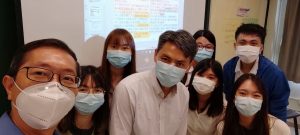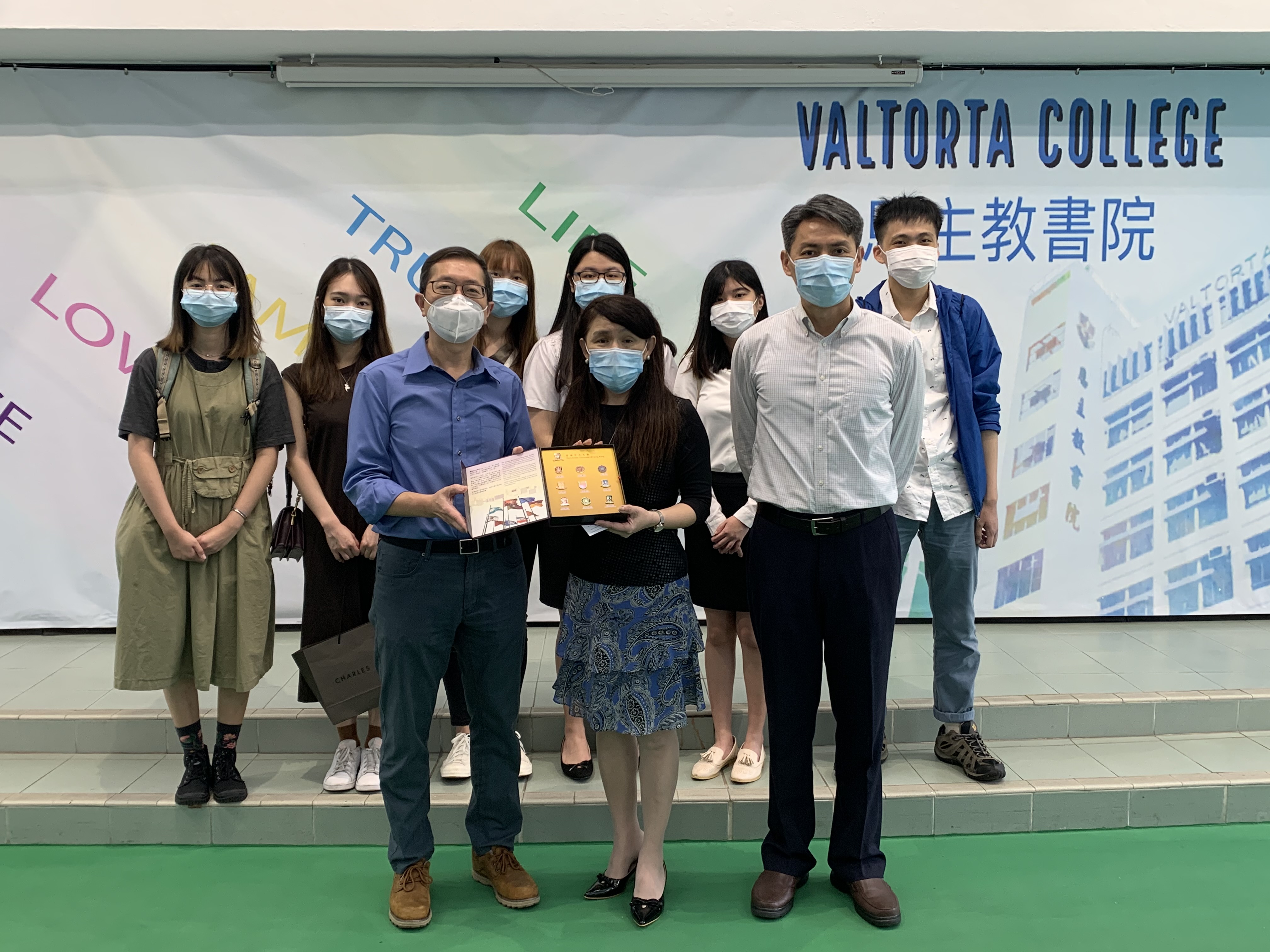訪校活動反思 – 老師最大的挑戰和回報
何凱琳 (後排左一) – 教育學士(通識教育) 學位課程四年級生
透過參觀恩主教書院,旁觀黃主任(學校通識科主任)的通識課,我認為作為老師最大的困難是面對課堂上的期望與現實的落差。
作為一個正在修讀教育學士學位的學生,相信都會憧憬成為一位老師,春風化雨,教導莘莘學子。在中學時候,我認為通識科目能夠讓我可以對自己、社會及世界有更深入的了解,所以在大學時選擇修讀通識教育,畢業後投身教育行業,希望將自己的知識、經歷傳授給學生。
而在大學期間,教授也教導我們不同的教學法、處理不同校內問題、作為老師的心態等知識。作為老師的我們當然希望能夠以生命影響生命、用愛去感染學生,作為學生在成長、學習上的同行者。作為一個準教師,我們相信自己有能力及熱誠去教導學生,憧憬未來的教學工作。
但在現實層面上,老師可能在教學上,未必能實踐自己的教育理念。例如我們要面對學校要求教學目標未必和自己的教育理念相符、能力稍遜或無心向學的學生對你教學方式的挑戰、大量教學以外的工作。
即使教導第一組別的學生,在黃副校長的課堂中,我也看到老師可能會面對課堂期望與現實的落差,然而透過黃副校長的分享,面對這個挑戰時,老師應該保持正面的態度去面對。現時的教育日漸趨向以學生為中心的教學,知識是老師和學生在課堂互相建構出來的,我們不應完全跟從自己心目中的劇本去教導學生,這樣會令學生的參與度大大降低、令學生覺得老師「一言堂」。而相信要令一個新老師去面對這個問題,相信都要一段時間作經驗累積,向有經驗的老師學習。
而作為老師最大的回報就是看到學生的進步。不同的學生學習能力當然有差異,我們並不要求學生全部都考獲佳績,而最重要的是看到學生無論在學習成績以及心態上有所進步。正如課堂上,黃副校長分享班上有一位同學的學習表現以及態度都未如理想,但在我們旁觀的課堂上,該學生也能回應王老師的問題,表達到自己的觀點和論點。不同的學生有不同的能力和成長背景,我們沒有辦法要求每一位學生都能夠考獲佳績,突飛猛進,然而看到學生學習心態上有所改善,變得更成熟,相信是老師最大的鼓勵及回報。
最後再次感謝學院及參觀學校的安排,令我們更了解前線老師在現實教學上面對的困難、其解決方法和擔任老師的喜悅,讓我受益匪淺。
田澤茵 (後排左三) – 教育學士(通識教育) 學位課程四年級生
After the LSED school visit to Valtorta College, I think building a good relationship with students is both the biggest challenge and reward as a teacher. A good relationship does not necessarily mean being friends with students but instead, achieving mutual respect with them. I think this is especially important for new teachers. Mr Wong, who led us on the day of the visit, also mentioned that it takes time for teachers to figure out a suitable way to interact with students such that they are willing to listen and communicate in class. If there are 30 students in a class, there would be 30 different personalities. An ideal teacher would be able to treat students as individuals but not just part of “the students”. This is also what I would like to achieve as a teacher. However, I figured that it will be difficult to carry out a lesson effectively at the beginning stage for a new teacher because we lack experience in leading a class and taking care of different types of students. I am glad that Mr Wong shared his experience in responding to students who are unwilling to cooperate or are lagging behind during class. I have learned from him that it is always nice to spare more lesson time for discussion. Students can hear from more perspectives on the issue through collaboration. They are also more confident in answering questions after the question is discussed and the answer is agreed among their groupmates. If a student is unable to answer a question, Mr Wong suggested we can allow him to discuss with his partners for a minute before answering again. He highly recommended short discussion activities because pauses and a slow teaching pace give students more opportunities to digest and think about the issue. Besides, students who doze off and lagged behind would also have time to catch up. This is a good way of treating students that lack confidence or easily lose focus in general.
As a reward, I think the relationship with students contributes to the greatest satisfaction in the teaching career. I think secondary school teachers do have a lasting impact on students’ future, from whether I can teach a subject well to whether I can make a student like a subject so that they work hard for it. More than that, when students consult me for their career choices, whether I am able to guide them in the right way is also important. If I have a good relationship with students, students would trust me and listen to my earnest words about life as I have gone through their stages. Seeing students become better people under my influence would be the greatest reward as a teacher.






